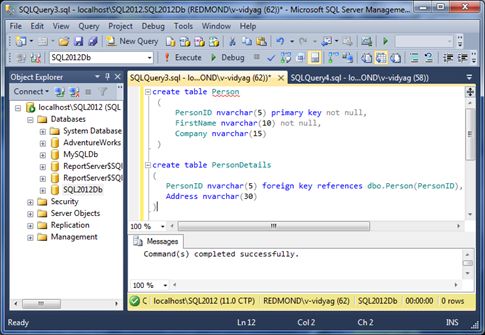
The will ALWAYS be 0 at the point you check it, as it's the row count of the previous statement, and the only way that execution could get to that point is if the TRY block was exited successfully, meaning the last statement was COMMIT TRANSACTION, and that affects no rows, hence will be 0. See the blog post I mentioned earlier for some details on how and what you need to do. If either the insert or delete throw errors, the procedure will exit with an uncommitted transaction See the blog post I referenced earlier for how XACT_ABORT works. You don't need a try-catch block if you have XACT_ABORT on, and if you want to handle errors yourself (logging table), you don't want XACT_ABORT on. If you want to set the transaction explicitly use: SET TRANSACTION ISOLATION LEVEL READ COMMITTED - but the transaction will be physically created when first row is modified, not when this statement is executed.

Data modifications always take exclusive locks. Normal, read committed transaction, starts automatically with the first modified row. You have no select queries, so there's nothing for it to affect. There's no point in setting the isolation level. SET TRANSACTION isolation level READ uncommitted - This is fine for me, need this to avoid blocking IF OBJECT_ID('tempdb.#T1') IS NOT NULL DROP TABLE #T1 transactionname is always case-sensitive, even when the instance of SQL Server is not case-sensitive. When nesting transactions, transactionname must be the name from the outermost BEGIN TRANSACTION statement. SET xact_abort, nocount ON -Added this for better error handling transactionname must conform to the rules for identifiers, but only the first 32 characters of the transaction name are used. I think this should work, any better way to handle this.

For instance, imagine that an employee was supposed to enter new coffee prices in the table COFFEES but delayed doing it for a few days. In addition to grouping statements together for execution as a unit, transactions can help to preserve the integrity of the data in a table.

Ii) Any error on delete - should rollback insert&delete & log the error Using Transactions to Preserve Data Integrity. I) Any error on Insert - Should rollback insert, not execute delete & log the error This is really what i am trying to do, should do following:


 0 kommentar(er)
0 kommentar(er)
